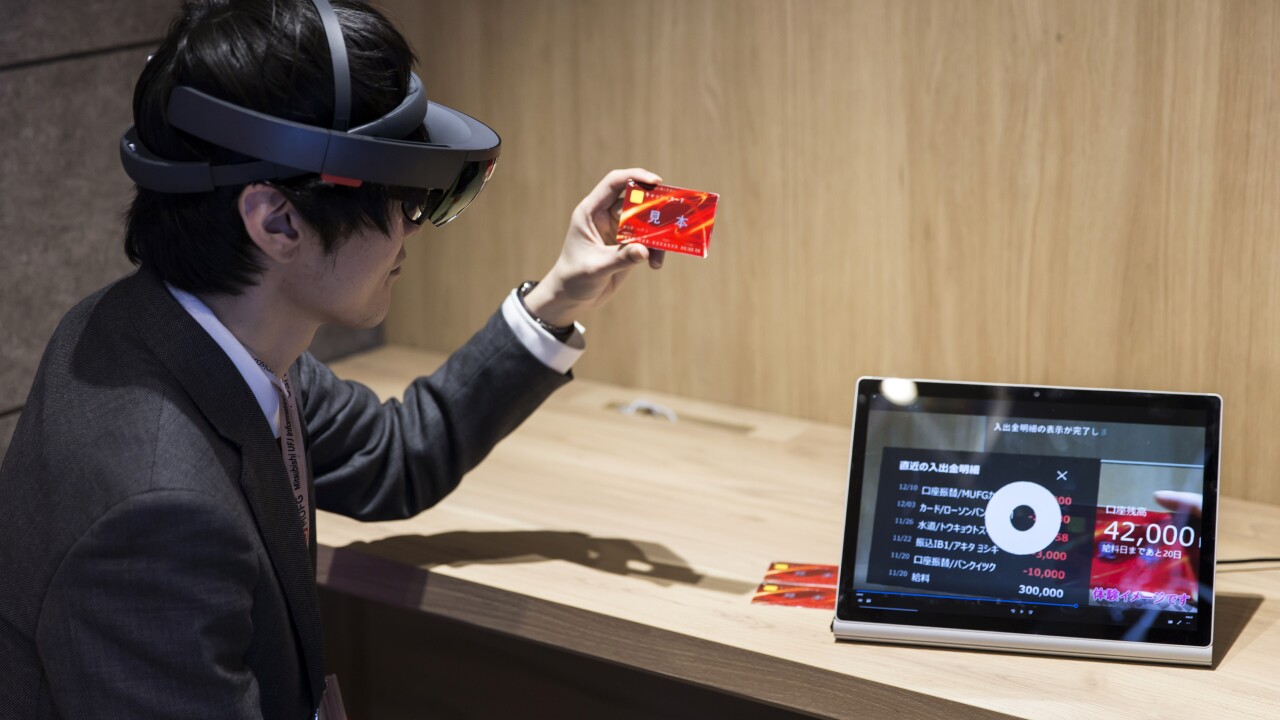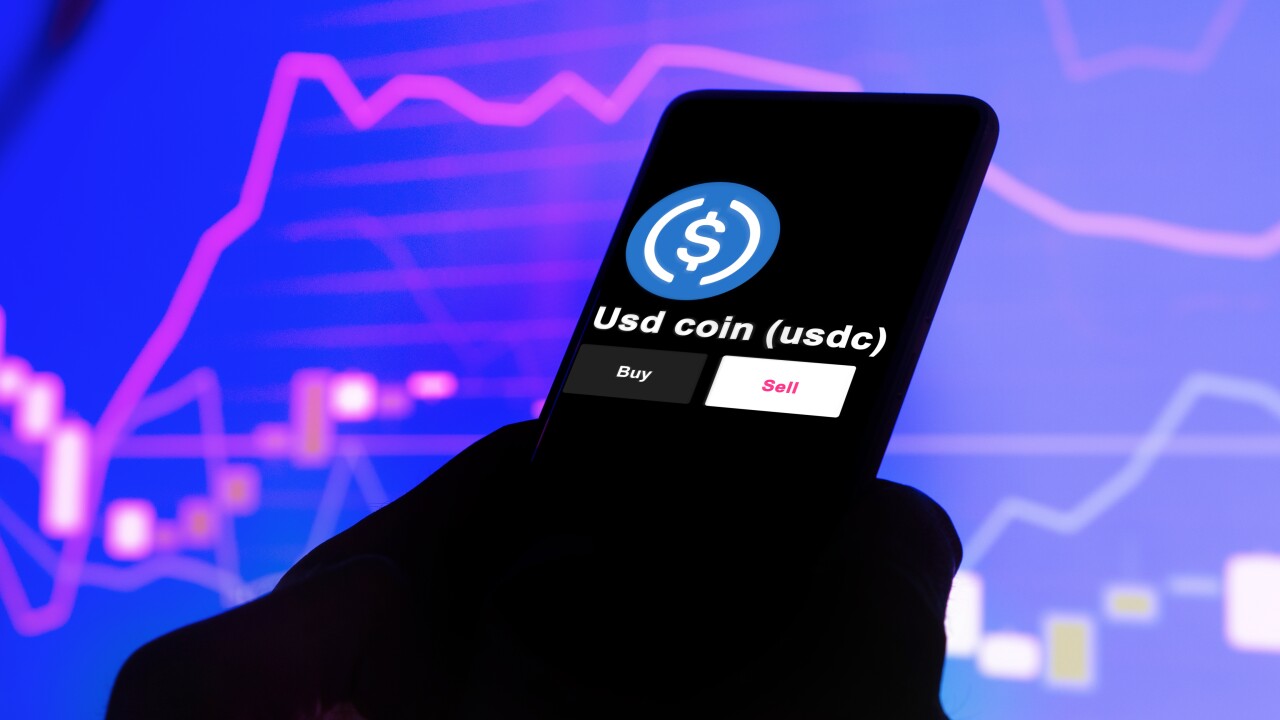-
The company behind eBillme has announced a partnership with Discover Financial Services that furthers the alternative payments provider's strategy of aligning itself with mainstream players.
February 24 -
It makes sense that a handful of banks looking for new revenue streams have approached Green Dot about starting programs to offer their customers prepaid cards.
February 11 -
Univision Communications Inc. has started a media campaign to promote surcharge-free automated teller machine access for holders of its prepaid cards.
February 10 - Texas
NetSpend Holdings Inc. is launching a rewards program for its prepaid debit cardholders using a merchant-funded system provided by Cardlytics Inc.
February 4 -
The fear is that not everyone will be able to afford a $10 or $15 a month checking account. Prepaid accounts offer banks consumers and banks alike a favorable alternative to checking.
January 26
Prevailing wisdom holds that prepaid cards are an alternative or, at best, a bridge to a bank account, not an overlapping product.
But Fuze Network Inc. says there is enough overlap today that consumers can use a bank's online bill-payment software to load funds to prepaid card accounts.
Fuze works from the premise that many consumers both use prepaid cards and have bank accounts. That contradicts the common thinking that most prepaid card users are unbanked, meaning they do not use mainstream banking services either by choice or because of financial hurdles.
While that is true for many prepaid users, there is plenty of crossover between the two categories, said Ben Jackson, a senior analyst in the prepaid advisory service at Mercator Advisory Group in Maynard, Mass.
Fuze "recognizes that there is a group of individuals who use these cards for budgeting," Jackson said.
Some banked consumers, Jackson said, use general-purpose prepaid cards, which function like regular debit cards, for online shopping or to allocate funds to a family member, such as a teenager.
In a survey that Mercator conducted last May, 8% of the 1,009 respondents said they had purchased a general-purpose reloadable card in the previous 12 months.
Of those, three out of four maintained a checking account in their household.
And Green Dot Corp., which sells prepaid cards through retailers such as Wal-Mart Stores Inc., 7-Eleven Inc. and Walgreen Co., has said that roughly half of its cardholders have a traditional bank savings or checking account.
Dave Wilkes, Fuze Network's chairman and chief executive, estimates that half of consumers who use general-purpose reloadable cards are banked or formerly banked. As banks add fees for checking accounts — pricing some consumers out of the market — the use of prepaid cards is likely to rise, Wilkes said.
Fuze, a Salt Lake City company founded last year, says it is working with prepaid companies to get the issuers of their cards set up to receive electronic payments from banks' bill-pay systems. In doing so, prepaid card users can more easily transfer money from their bank accounts without needing to use reload services that can cost as much as $5 a pop, Wilkes said.
Using Fuze's technology, program managers can more easily arrange for their bank partners to receive payments through online bill payment, Wilkes said.
Wilkes declined to say which prepaid companies Fuze is working with. Fuze charges prepaid program managers a monthly "network connectivity" fee of $500 and a transaction fee up to about 50 cents, depending on volume, Wilkes said.
Representatives of Green Dot and NetSpend Holdings Inc. said Thursday that the companies are not working with Fuze. Both companies offer free reload options, such as direct deposit, and options for which they charge a fee.
NetSpend also offers a service from an outside vendor, Vesta Corp., that lets customers reload their accounts using a bank-issued debit card through NetSpend's website.
Fuze's approach is similar to that of the prepaid marketer Plastyc Inc., which formed a partnership last year with ModaSolutions Corp., the company behind the online payment service eBillme.
Moda's system lets consumers pay for e-commerce purchases through a bank's online bill-pay system. Plastyc lets its users generate funding requests through eBillme, much like a merchant would generate an invoice, and these can be paid through online bill pay.
Plastyc is promoting the eBillme link to cardholders who are freelancers or sole proprietors, said Patrice Peyret, the New York company's CEO.
A small percentage of Plastyc's prepaid cardholders also have a bank account, but "the reality is that even if they do have a bank account, the reason why they are taking up a prepaid card is that bank account may have gotten them in trouble with overdraft fees and other things," Peyret said.
"It doesn't mean they're going to shut down their bank account, but they may keep it dormant," he said.
Even so, Fuze's bill-payment reload option is good for its users because banks typically offer bill pay as a free service, said Rachel Schneider, the vice president of innovation and research at the Center for Financial Services Innovation, which conducts research on products for the underbanked.
However, Schneider and others said consumers should not take free bill payment for granted given that banks are adding fees for checking accounts and other products and services in response to new regulations restricting their revenue.
"As we go into a new world of banking where everybody is looking at their fees … you can expect that something like bill pay is going to end up being … chargeable over time," said Brian Riley, a senior research director for bank cards at TowerGroup in Needham, Mass.





